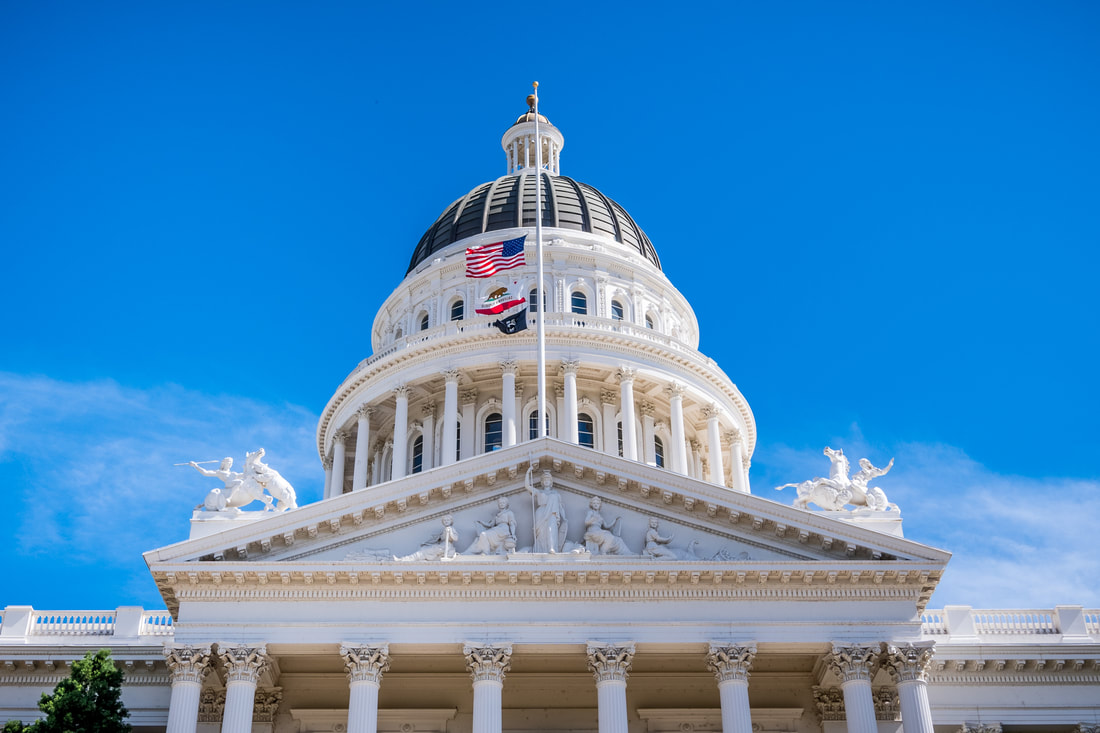|
Last Saturday was the deadline for California Governor Gavin Newsom to either sign or veto the roughly 1,000 bills that made it to his desk. Below is a recap of some of the most notable employment bills that the Governor signed or vetoed.
Higher Minimum Wages Governor Newsom signed a pair of bills, AB 1228 and SB 525, that set higher minimum wages for workers in the fast food and healthcare industries. Under AB 1228, fast-wood workers’ minimum wage will be bumped to $20 an hour in April. Hundreds of thousands of healthcare workers in the state will see their minimum wage eventually increased to $25 an hour under SB 525. Employers Lose a Delay Tactic SB 365 allows employment lawsuit proceedings to move forward, rather than pause, when defendants appeal orders denying a request to compel arbitration. Governor Newsom signed the bill, effectively undercutting a tactic that sometimes-allowed employers to delay cases for years at a time. More Paid Sick Days Starting next year, California’s workers will be entitled to at least five days of paid sick leave, up from the current minimum of three days, as a result of Governor Newsom signing SB 616. Family Caregiver bill Nixed In a defeat for employees, the Governor vetoed AB 524, a bill that would have added “family caregiver status” to the list of protected characteristics that employers cannot consider when making employment decisions such as hiring and firing. No Unemployment Benefits while on Strike SB 799 would have allowed workers to collect unemployment insurance benefits while on strike. Governor Newsom vetoed the bill, citing the multi-billion-dollar debt that California’s unemployment insurance program incurred to keep benefits flowing during the pandemic. To see what other important employment bills were signed and vetoed by the Governor, click here.
0 Comments
 We’re halfway through 2023, and so far it’s lived up to experts’ predictions of being one of the most active years for labor strikes in recent memory. Below is a round-up of some of this year’s most significant strikes and strike authorizations. LAUSD Teachers’ Strike In late March, workers for the Los Angeles Unified School District (LAUSD), the nation’s second largest public school system, embarked on a three-day strike hoping to secure pay increases as the cost of living in Southern California rapidly outpaced their wages. The worker’s efforts were ultimately successful. In April, LAUSD ratified a contract negotiated with the teachers’ union, UTLA, that raises teachers’ pay by 21% over the course of three years, bringing the average LAUSD teacher salary to $106,000 by 2025. The agreement also included salary increases for LAUSD’s nurses, mental health workers, and special education teachers, along with promises to reduce class sizes. More than 94% of the 27,171 ballots cast by UTLA members were in favor of the new contract. Hollywood Writers’ Strike On May 2, the membership of the Writers’ Guild of America (WGA), a union representing approximately 11,500 Hollywood writers, went on strike. Hollywood writers are fighting against numerous trends in the entertainment industry that have caused their pay and job security to decline significantly over the past decade while industry profits have ballooned, particularly for the likes of streaming companies such as Netflix, which reported a $5.6 billion operating profit for 2022. The writer’s strike is still ongoing with no end in sight. Highly anticipated TV projects such as “Stranger Things” and a “Game of Thrones” spinoff have been delayed and other major series are expected to be postponed. Beyond the changes Americans may see on their television screens, the strike also figures to have significant consequences for the economy at-large. The last writers’ strike in 2008 cost the California economy $2.1 billion as writers and countless other workers that support the entertainment industry– designers, electricians, grips, and restaurant workers – felt the crunch of the work stoppage. UNITE HERE Local 11 Strike Authorization On June 9, members of UNITE HERE Local 11, a union representing service and hospitality workers across the American Southwest, overwhelmingly voted to authorize a strike. The union could now call for 15,000 of its members across dozens of Southern California hotels to strike. Doing so would amount to the largest industry wide strike in U.S. history. The top priority for the hotel workers is securing higher wages to combat the persistent rising cost of living in Southern California. Even though Hotel profits in Los Angeles and Orange County now exceed their pre-pandemic levels, the workers that form the backbone of their operations still struggle to make ends meet. A strike may take place as early as July 4th weekend. Teukolsky Law commends workers for the gains they’ve made this year and recognizes them for the courage it takes to put themselves on the picket line.  Though we are only three months into 2022, thousands of workers across the country have already taken significant steps towards securing improved working conditions, higher wages, and greater corporate commitments to their general well-being. Below are some organizing achievements by workers this year that we would like to take a moment to highlight: Amazon: On Friday, April 1, employees at a massive Amazon warehouse in Staten Island voted by a wide margin to form a union. The vote marked the first successful unionization attempt by Amazon workers in the company’s history. Some commentators view the vote as milestone event that might signal a turning point in workers’ organizing efforts against Amazon, a company many union leaders regard as an existential threat to labor standards. Starbucks. Since February of this year, seven Starbucks locations – two in Mesa, AZ, three in Buffalo, NY, one in Seattle, WA, and one in Knoxville, TN – have voted to unionize, bringing the total number locations that have voted to unionize to nine. Starbucks employees have cited low wages, lackluster benefits, staffing shortages, and unrealistic performance metrics as the main drivers for unionization. Since the first Starbucks locations voted to unionize in December 2021, approximately 160 Starbucks locations have filed petitions with the National Labor Relations Board to unionize. Chevron Corporation: In March, employees at a Chevron Corporation oil refinery in Richmond, CA went on strike. The strike came after the company’s contract with the United Steelworkers Local 5 union expired the previous month. Workers in Richmond are demanding higher wages and staffing improvements, both of which have become increasingly urgent as inflation soars and some Chevron employees feel obligated to work 70 hour weeks to make ends meet. Kellogg: After 1,400 Kellogg workers went on strike in 2021, workers at a Kellogg’s plant that makes Cheez-its won a new contract that included a 15 % wage increase. According to the workers’ union, the Retail, Wholesale and Department Store Union, it is the largest wage increase employees at the location have ever seen. Warrior Met Coal: Nearly 1,000 coal miners in Brookwood, AL, remain on strike in what has become one of the longest coal mine strikes in American history. The miners have been on strike since, April 1, 2021, and are demanding that their wages be restored to the levels they were at prior to Warrior Met Coal’s 2015 bankruptcy. They are also fighting for improved workplace protections, such as excused absences for family emergencies. Warrior Met Coal recently reported its most profitable quarter in three years and said it was hiring new workers during the strike. We commend the work of Union Organizers and employees who continue to work tirelessly towards a brighter future for workers. Even though the union membership rate declined in 2021, three months into 2022, the prospects for the American labor movement looks very bright.  From today until March 26, members of seven local grocery store unions across Southern California will vote to determine whether they will go on strike. The vote comes after negotiations between union leaders and the owners of Ralphs and Albertsons/Vons/ Pavilions failed to lead to a new contract with better wages and benefits for workers. The vote also comes after United Food and Commercial Workers Union (UFCW) locals filed unfair labor practice charges against the companies for interfering with employees for engaging in union activity and refusing to disclose information requested by the locals in order to bargain for their members’ contracts. Union leaders are fighting on behalf of approximately 60,000 Southern California grocery store workers to secure higher wages. Following a pandemic that led to a financial windfall for large grocery store chains, many workers still find themselves struggling to make ends meet, often making little more than the minimum wage and suffering from food insecurity as the cost of living in California continues to get more expensive. In addition to fighting for higher wages, union leaders are also working towards increasing the minimum number of hours that part-time workers can be scheduled and securing language that protects workers from being kept after their scheduled hours. Workers also want better safety for both workers and customers in terms of COVID protocols, and staffing increases to offset the shortages they faced during the pandemic. The results of the vote are expected to be announced on Sunday. The vote will not necessarily result in a strike, though it does give union leaders the right to call a strike if an agreement with grocery store companies cannot be reached. Teukolsky Law commends the brave and difficult work of UFCW and hopes to see an agreement advancing grocery workers’ well-being and dignity reached soon. This year, thousands of American workers have gone on strike in hopes of better working conditions, higher pay, and a greater commitment to their safety and well-being in the midst of the pandemic. As the year draws to a close, we would like to take a moment to acknowledge some notable strikes from 2021.
John Deere – More than 10,000 workers at John Deere went on strike for five weeks in October and November. The United Auto Workers negotiated the new agreement, which the workers accepted in mid-November. The deal included a 10% immediate raise, an $8,500 signing bonus, 5% raises in the third and fifth year of the six-year deal, and additional lump sum payments equal to 3% of wages in years two, four and six. It also reinstated a cost-of-living adjustment to protect workers from inflation and the increased cost of housing and goods. Kellogg – Around 1,400 workers have been on strike at 4 different cereal plants since the beginning of October. On December 7, the workers rejected a tentative plan for a five-year contract that their union negotiated. The strike is mainly about the two-tier compensation structure at the company. Under the current terms, newer employees earn lower wages and receive fewer benefits than more seasoned workers. However, this lower tier included up to 30 percent of workers. The company said that in the wake of the rejected agreement, it would “hire permanent replacement employees in positions vacated by striking workers.” Frito-Lay – Around 600 employees at the Topeka Frito-Lay plant struck for 19 days in July, ending the strike with the ratification of a two-year contract that guarantees at least one day off per week and a raise in wages. Workers at the plant had been working forced overtime and 84-hour work weeks. We salute the brave workers across the country who have put their own livelihoods on the line to fight for better pay and working conditions. When we fight, we win. |
AuthorLauren Teukolsky is the founder and owner of Teukolsky Law, A Professional Corporation. Archives
June 2024
Categories
All
|
Teukolsky Law, A Professional Corporation, represents clients throughout California. Ms. Teukolsky is admitted to practice in the State of California, as well as the United States Supreme Court, Ninth Circuit Court of Appeals, Northern District of California and Central District of California. Disclaimer.
Copyright © 2017
Copyright © 2017


 RSS Feed
RSS Feed